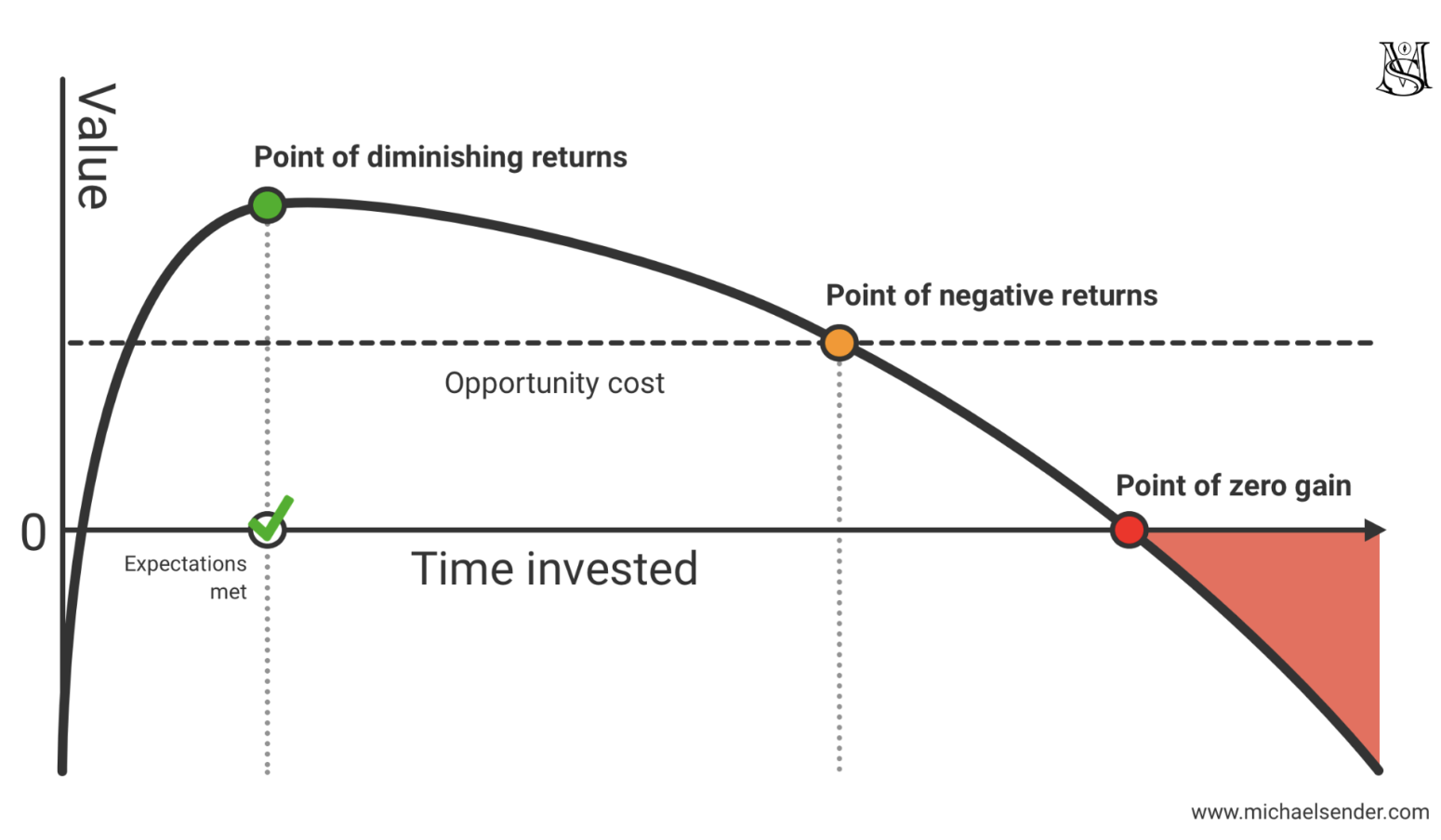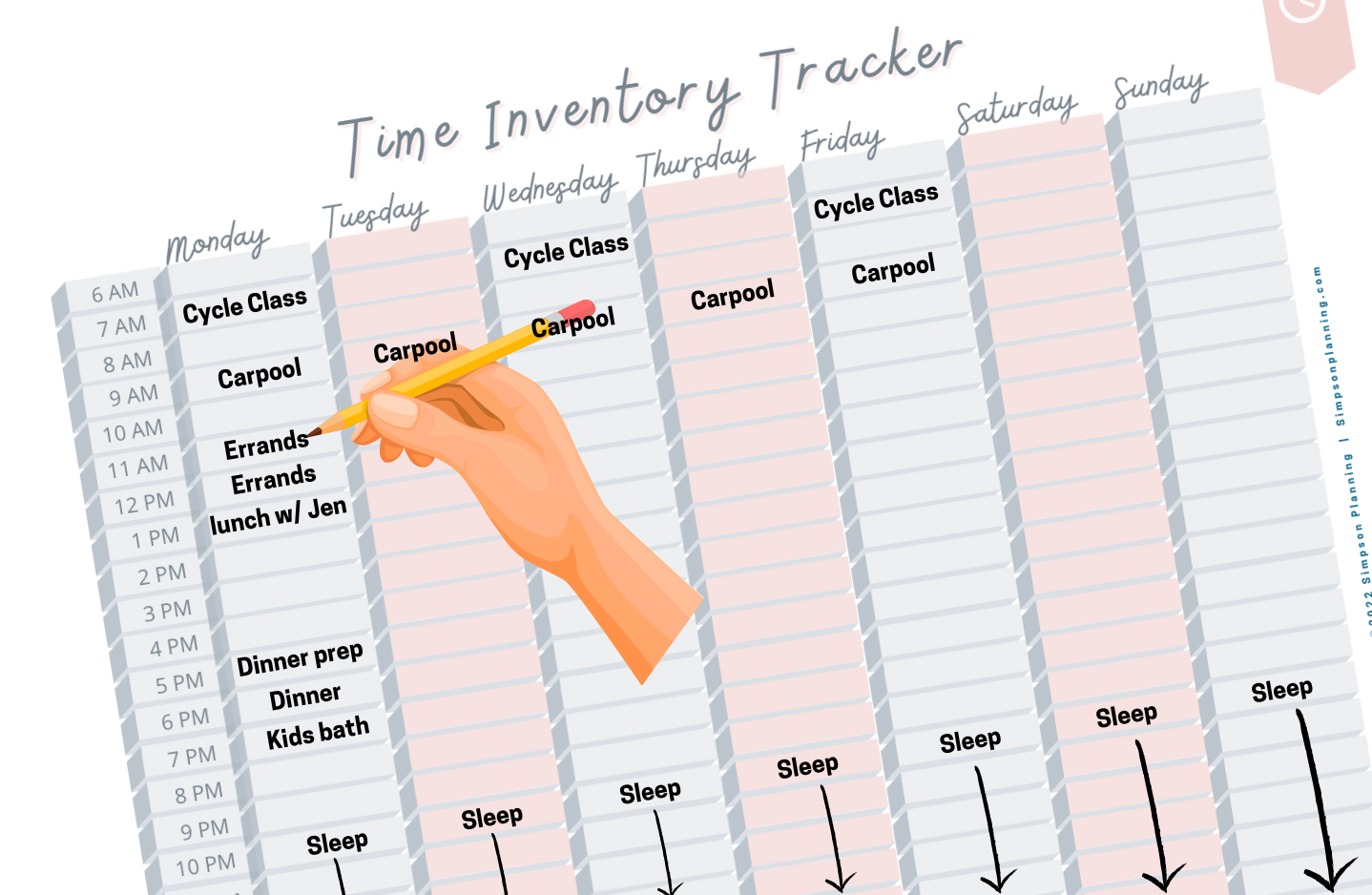Mastering Time Management: Where Does Your Time Go?
Unleash Your Productivity: The Art of Time Management
Time, the most precious currency in our lives, is finite and irreplaceable. Each day brings the same gift to every person on this planet: 24 hours. How we choose to invest this limited resource defines the trajectory of our lives.
Mastering time management is not merely a skill; it's the key to unlocking your potential and achieving your most cherished goals. It's about making deliberate, thoughtful choices that lead to a life filled with purpose, productivity, and balance.
Let’s delve deep into the world of time management & discover not just the what, but the why and the how. This is not a quick fix; it's a journey toward sustainable change.
We'll explore the techniques that successful individuals use to make the most of each day, such as the Pomodoro Technique, the Eisenhower Matrix, and the power of focused time blocks. We'll provide real-life examples and case studies to illustrate their effectiveness.
But it's not just about work. Effective time management extends beyond the office or your to-do list. It's about reclaiming your:
personal life
spending quality time with loved ones
nurturing your passions
and finding time for self-care.
Join us as we embark on this journey to transform the way you approach time. Let's navigate the art of time management together, making every minute count and ensuring that, in the end, you look back with satisfaction, knowing that you invested your most valuable asset wisely.
Welcome to the world of time management, where we'll explore the intricacies, unveil the strategies, and guide you on a path to becoming the master of your own time.
The Fundamentals of Time Management
Time is the one truly finite resource. Everyone gets the same 24 hours in a day, and once a moment is gone, you can never get it back. Understanding the value of time is the first step in appreciating the importance of time management.
Effective time management allows you to make the most of the time you have. When you allocate your hours wisely, you become more productive. You're able to accomplish more in less time, freeing up space for other activities or relaxation.
At its core, time management is the art of making the best use of your time to achieve your goals and priorities. It involves consciously deciding how to allocate your time and energy to tasks and activities that matter most. Time management is not about doing more; it's about doing what matters.
"Procrastination is like a credit card: it's a lot of fun until you get the bill."
- Christopher Parker
What about procrastination?
Chronic procrastination is a widespread issue that affects approximately 20% of individuals, according to a study published in the Journal of Behavioral Decision Making. This behavior can cause increased stress, reduced productivity, and compromised time-management skills, which are undeniable consequences. The Journal of Behavioral Decision Making also published a study that supports this claim. If you find yourself struggling with chronic procrastination, it's important to take steps to overcome it and improve your overall well-being.
Key Takeaways
Prioritize Purpose: Start by aligning tasks with your values and goals for a more purposeful life.
Adapt to Thrive: Find what time management techniques work best for you and be ready to adjust as your goals evolve.
Self-Care is Vital: Don't neglect self-care; it's crucial for energy, preventing burnout, and effective time management.
Journal of Behavioral Decision Making study.
Identifying Your Priorities
Effective time management begins with identifying your priorities, the core values, goals, and activities that truly matter in your life.
1. Define Your Values: Start by recognizing what matters most to you, be it family, career, health, or personal growth. Your values serve as your guiding principles, helping you make decisions that align with your true priorities.
2. Set Clear Goals: Your priorities are closely linked to your goals, both short-term and long-term. Goals provide direction and turn your priorities into actionable targets.
3. Assess Current Commitments: Evaluate your current commitments to ensure they align with your values and goals. If they don't, consider adjusting or letting go of certain responsibilities.
4. The 80/20 Rule: Focus on the tasks and activities that yield the most significant results. The Pareto Principle suggests that 20% of your efforts lead to 80% of your outcomes. Identify and emphasize these high-impact priorities.
5. Be Realistic: Balance ambition with realism. Avoid overcommitting by focusing on a manageable number of high-priority tasks, increasing your chances of success.
6. Regular Evaluation: Recognize that priorities can evolve. Regularly reevaluate and update your priorities to ensure they stay aligned with your changing values and goals.
Identifying your priorities is about making intentional choices on how to invest your most valuable asset—time. This clarity empowers you to channel your energy into activities that truly matter, leading to a more balanced and purpose-driven life.
Financial Matters:
Financial matters encompass a broad range of topics that revolve around the management and stewardship of your financial resources. These topics play a pivotal role in determining your economic well-being and financial stability, for example, the allocation of your time and attention to activities that have a direct or indirect impact on your financial well-being.
Money Management Time:
Just as you budget your finances, you should budget your time. Time management involves setting aside dedicated blocks of time for tasks and activities that are financially beneficial. For example, allocating time for work, freelance projects, or side hustles can contribute to increased income.
Budgeting Time:
Time budgeting is akin to financial budgeting. By allocating specific time slots for your various responsibilities and activities, you can effectively balance your work, personal life, and financial endeavors. Time budgeting ensures that your time is spent on income-generating activities and financial planning.
Investment in Time:
Time can be seen as an investment, much like money. Allocating your time for learning and skill development, whether through courses, workshops, or self-improvement, can lead to increased earning potential. Just as wise financial investments yield returns, investing time in personal and professional growth can pay dividends.
Financial Planning Time:
Financial planning, including setting financial goals, monitoring expenses, and saving, requires dedicated time. Effective time management ensures you have the necessary time to create and execute financial plans.
Debt Management Time:
Managing debts, such as loans or credit card balances, necessitates time for organizing finances, creating repayment strategies, and staying on top of due dates. Time management ensures you can allocate time to address debt-related matters efficiently.
Specific Financial Goals:
Time management plays a crucial role in achieving specific financial goals. For instance, if someone aims to start a side business, time must be allocated for planning, execution, and monitoring progress. Time management guides the efficient pursuit of these goals.
Financial Literacy Time:
To enhance financial literacy, you should dedicate time to learning about financial concepts and best practices. Time management allows for setting aside regular periods for reading financial literature, attending workshops, or seeking advice from financial experts.
Incorporating these financial matters into your time management strategy is essential for achieving financial stability and success. Just as you carefully manage your finances, effective time management ensures you make the most of your time to reach your financial goals and secure your financial future.
Health Matters in the Context of Time Management:
When considering "health matters" within the framework of time management, it involves recognizing how we allocate our time can profoundly impact our physical and mental well-being. Here's how health matters are pertinent to time management:
Exercise and Physical Health:
One of the key health matters is physical fitness. Regular exercise is essential for maintaining good health, but it often gets overlooked due to busy schedules. Time management should include allocating dedicated time for exercise. In fact, the World Health Organization (WHO) recommends that adults should engage in at least 150 minutes of moderate-intensity or 75 minutes of vigorous-intensity physical activity per week.
Statistic: According to the CDC, only about 23% of U.S. adults meet both the aerobic and muscle-strengthening physical activity guidelines.
Diet and Nutrition:
Healthy eating is a fundamental aspect of well-being. Time management can involve setting aside time for meal planning, cooking nutritious meals, and avoiding fast food or unhealthy snacks.
Statistic: The American Heart Association reports that poor diet contributes to approximately 678,000 deaths in the United States each year.
Stress Management:
Time management can be used to manage stress effectively by allocating time for relaxation, meditation, or stress-reduction techniques. This can significantly impact your mental health. Chronic stress can lead to various health issues.
Statistic: The American Institute of Stress states that job stress is a major source of stress for adults, with 80% of workers feeling stress on the job.
Sleep:
Adequate sleep is crucial for overall health. Time management should prioritize sufficient sleep hours, as chronic sleep deprivation can lead to various health problems.
The National Sleep Foundation recommends that adults aim for 7-9 hours of quality sleep per night. However, around 35% of adults in the United States report getting less than 7 hours of sleep on average.
Preventive Healthcare:
Scheduling regular check-ups and screenings for preventive healthcare is a matter of time management. Detecting health issues early can lead to more effective treatment and better outcomes.
The Centers for Disease Control and Prevention (CDC) reported that in 2018, only 33% of adults aged 18-64 had received all recommended preventive health services.
Mental Health:
Allocating time for self-care, seeking therapy or counseling, and practicing mindfulness are essential for mental health. Ignoring mental health can lead to conditions like depression and anxiety, which will ultimately diminish your ability to achieve your goals.
According to the National Institute of Mental Health (NIMH), in 2020, an estimated 21.0 million adults in the United States experienced at least one major depressive episode in the past year.
Incorporating these health matters into your time management strategy is vital for maintaining a balanced and healthy lifestyle. These statistics highlight the importance of managing time to prioritize physical and mental well-being, as neglecting health matters can lead to various health issues and reduced quality of life.
Self-Care in the Context of Time Management:
Self-care, in the context of time management, refers to the deliberate allocation of time for activities and practices that nurture one's physical, emotional, and mental well-being.
It involves recognizing that taking care of yourself is not a selfish act but a fundamental aspect of maintaining balance and overall productivity. Here's how self-care relates to your time management:
Prioritizing Well-Being:
Effective time management should prioritize well-being. This means setting aside dedicated time for activities that promote relaxation, stress reduction, and personal happiness. These activities can include hobbies, exercise, mindfulness, or simply leisure time.
Preventing Burnout:
Time management should incorporate breaks and downtime to prevent burnout. Overworking without adequate breaks can lead to exhaustion and reduced productivity. Regular short breaks during work and longer breaks between tasks can re-energize and improve focus.
Maintaining Physical Health:
Self-care includes allocating time for exercise, healthy eating, and sufficient sleep. These practices not only contribute to physical well-being but also enhance overall productivity and focus.
Mental Health:
Dedicate time to activities that support mental health, such as meditation, journaling, or engaging in relaxing hobbies. These practices can reduce stress, anxiety, and boost mental clarity.
Saying 'No':
Effective time management involves setting boundaries and learning to say 'no' to unnecessary commitments and distractions. This allows individuals to prioritize their well-being and manage their time more efficiently.
Work-Life Balance:
Self-care within time management promotes a healthy work-life balance. This means ensuring that work-related tasks don't encroach excessively on personal time, and vice versa. Balancing these aspects of life is essential for overall satisfaction and well-being.
Measuring Progress:
Self-care involves tracking your own progress, both in terms of productivity and personal well-being. Time management should allocate time for self-reflection, goal setting, and assessing whether the allocation of time aligns with personal goals and values.
Customization:
Self-care is highly individualized. What constitutes self-care can vary from person to person. Effective time management allows individuals to customize their routines to include self-care practices that resonate with them.
By integrating your self-care into your time management, you will maintain a healthy work-life balance, reduce stress, and enhance your overall quality of life. This approach acknowledges that managing time isn't just about productivity; it's also about nurturing one's well-being to be more effective and fulfilled in both personal and professional endeavors.
Step-by-Step
Ready? Let's do this! 🕒
Step 1: Grab a notebook, open an app on your phone, or get our FREE DOWNLOAD & your favorite pen.
Step 2: Start with today. List everything you did, from waking up to going to bed. Be honest!
Step 3: Categorize your activities. Work, leisure, chores, socializing—whatever makes sense for you.
Step 4: Assign time spent on each activity. Use hours or minutes—your call.
Step 5: Calculate totals for each category. Are you surprised by where your time goes?
Step 6: Reflect. Are you happy with how you're spending your hours? Are any changes needed?
Step 7: Create a time budget. Allocate hours to what truly matters to you.
Step 8: Stick to it! Adjust as needed. Time's your most valuable asset—spend it wisely!
Remember, this is about YOUR life, so personalize it. You got this! 💪🌟
Creating a Time-Blocking Schedule
Time blocking is a dynamic strategy that can revolutionize your productivity. Picture your day as a series of blocks dedicated to a specific task or activity. By allocating focused time to your most important tasks, you harness the power of deep work.
Start your day by setting aside a block for your top priority. Guard this time zealously, allowing no distractions to intrude. Time blocking forces you to break your day into actionable segments, ensuring that you tackle what truly matters.
As you progress, adapt your time blocks to your energy levels and the needs of the moment. Embrace flexibility while maintaining a structured approach, and watch as your productivity soars.
The key to effective time blocking is adapting it to your unique daily rhythm and evolving priorities.
Dealing with Time Wasters
Time wasters lurk in various forms, from constant smartphone notifications, unproductive meetings & hard to please clients.
Recognizing and addressing these culprits is essential for effective time management. Start by identifying your own time-wasting habits, (low value vs high value) whether it's excessive social media scrolling or unnecessary multitasking.
Next, establish firm boundaries to minimize these distractions. Learn the art of saying 'no' to unproductive requests, and consider implementing tools and techniques to increase focus, such as time-tracking apps or the Pomodoro Technique. By systematically addressing time wasters, you reclaim valuable hours and ensure your precious time is invested in meaningful pursuits.
This graph touches on the importance of recognizing and tackling time-wasting behaviors, emphasizing the need for boundaries, saying 'no' to unproductive requests, and utilizing tools and techniques to boost productivity.
The Power of To-Do Lists
To-do lists are your trusty sidekick in the quest for effective time management.
They serve as a compass, guiding you through the maze of daily tasks and priorities.
Creating a well-structured to-do list is an art in itself. Start by brain-dumping all of your tasks, making sure they are clear and specific. Then, prioritize them based on importance and deadlines. As you tackle each item, the satisfaction of checking it off provides a sense of accomplishment.
To-do lists not only keep you organized but also free up mental space, as you no longer need to store all your tasks in your head.
Moreover, they offer a tangible record of your achievements, serving as motivation and evidence of your progress. In a digital age, the simple to-do list remains a potent tool for managing your time and staying on the path to success.
The significance of to-do lists in time management, from their role in prioritization to their ability to clear mental clutter provide motivation.
Who doesn’t want a little more of that?
Time Management Techniques
In the realm of time management, there are numerous techniques and methods, each with its unique strengths.
Consider:
Pomodoro Technique, which divides your work into focused 25-minute intervals followed by short breaks, enhancing concentration and productivity.
The 2-Minute Rule encourages immediate action for tasks that can be completed in two minutes or less, reducing procrastination.
The Eisenhower Matrix helps you categorize tasks into four quadrants based on urgency and importance, aiding decision-making. Discovering the right technique for you is a personal journey, often involving trial and error. Experiment with different approaches and find the one that harmonizes with your work style, boosting efficiency and time management skills.
These are a few diverse applications of finding the method that best suits your work style and preferences. Be encouraged to explore various techniques to enhance your efficiency and time management.
Handling Interruptions and Distractions
In a world filled with:
constant notifications
unexpected phone calls
colleagues seeking your attention
spam phone calls
email notifications
1000 things in your head
too many open loops (unresolved tasks or projects)
mastering the art of handling interruptions and distractions is essential for effective time management.
Start by setting boundaries and communicating your focused work periods to those around you. Use technology to your advantage by silencing non-essential notifications during designated work hours.
When disruptions occur, evaluate their urgency and address them accordingly, whether through delegation, deferral, or quick resolution.
Techniques like the "Do Not Disturb" feature on your devices or creating a dedicated workspace can help minimize interruptions. The ability to regain your focus swiftly after being interrupted is a skill honed through practice and patience, ultimately leading to enhanced productivity and efficient time management.
The need to set boundaries is imperative. Leverage technology, and develop strategies for handling your interruptions and distractions in the quest for effective time management. The value of swiftly regaining focus after disruptions and the long-term benefits of honing this skill will leave you feeling proud of your progress.
The Importance of Self-Care
Amid the hustle and bustle of life, self-care is often overlooked but is an integral component of effective time management.
Neglecting self-care can lead to burnout and reduced productivity. Taking the time to rest, exercise, eat well, and nurture your mental well-being is not a luxury; it's a necessity.
Self-care = better energy. It helps you focus on needed priorities. It's not about selfishness but about ensuring you have the vitality and mental clarity to make the most of your time. By making self-care a non-negotiable part of your routine, you enhance your overall well-being, increase your resilience, and elevate your ability to manage time and responsibilities effectively.
Self-care prevents burnout and enhances productivity it is not a selfish act but an essential practice for maintaining well-being and improving time management skills.
“Should an emergency situation occur, you need to put your own oxygen mask on first, before attempting to help those around you.”
3 Resources I suggest:
Review and Reflect
Regularly reviewing and reflecting on your time management strategies is the secret sauce to continual improvement. It's a practice that involves pausing to assess what's working and what needs adjustment.
If you analyze your to-do lists, time-blocking schedule, and techniques, it will be clear how well they align with your evolving goals and priorities.
Embrace the flexibility to adapt your strategies as your life changes and your goals evolve. By making review and reflection a habit, you ensure that your time management remains a dynamic & highly personalized system empowering you to achieve your aspirations.
Regularly review so you can adjust & improve.
Blog articles you may find interesting…
Conclusion
In the journey of mastering time management, remember it's not about becoming a productivity machine but about achieving the life you envision.
It's about having more time for what truly matters—family, passions, growth, and well-being.
So, as you embark on this path, take it one step at a time.
Identifying your priorities
Create effective schedules
Manage interruptions
Nurturing self-care.
Experiment with techniques that suit your style, and don't forget to review and adapt.
Your time is a precious resource; once spent, it's gone. But with the right time management strategies, you can harness its full potential. So, go ahead, take charge of your time, and transform your life. It's within your grasp. Begin now. Your dreams await.
F.A.Q.
Why Do I Always Procrastinate?
Lack of Motivation: When a task doesn't align with your personal goals or interests, it's easy to put it off. You may often procrastinate when you don't find a strong reason to complete a task.
Fear of Failure: The fear of not meeting your own expectations or the fear of being judged negatively can lead to procrastination. This fear of failure can paralyze you, making you constantly put tasks off.
Task Overwhelm: When a task appears too large or complex, you may procrastinate due to feelings of overwhelm. Breaking the task into smaller, manageable parts can help reduce this feeling.
Perfectionism: You may feel compelled to want your work (space) to be perfect, and this desire for perfection can lead to procrastination. You may even delay tasks because you're afraid of making mistakes or not meeting your high standards.
Poor Time Management: Ineffective time management can result in procrastination & frustration. When you don't plan your tasks well, you may put them off until the last minute, thinking you have more time than they actually do.
How Can I Stop Overcommitting My Time?
Overcommitting to tasks and responsibilities can lead to poor time management. Do you often wonder how you can strike a balance & avoid taking on too much?
People Pleasers: Many individuals have a strong desire or a need to be helpful and make others happy. This can lead you to say "yes" to numerous commitments, even when you already have a full plate or it doesn’t fit into your goals. You overcommit because you want to avoid disappointing people or because you fear that saying "no" will harm your relationship(s).
Underestimating Time and Energy: Do you often underestimate the time and energy required to complete tasks and commitments? You may have an optimistic view of your capabilities or believe you can handle more than you actually can. As a result, you agree to additional responsibilities without fully understanding the impact on your schedules.
What Are the Common Time-Wasting Habits to Avoid?
Procrastination: Delaying tasks and focusing on your distractions.
Unstructured Multitasking: Trying to do too much at once, reduces your focus.
Excessive Meetings and Email: Unproductive or frequent meetings and constant email checking.
How Do I Prioritize Tasks Effectively?
The Eisenhower Matrix: Use this matrix to categorize tasks into four groups based on urgency and importance:
Urgent and Important: Do these tasks immediately.
Important, but Not Urgent: Schedule these tasks.
Urgent, but Not Important: Delegate these tasks if possible.
Not Urgent and Not Important: Consider dropping or deferring these tasks.
The ABCD Method: Label tasks with A, B, C, or D based on their priority:
A tasks: High priority, must be done today.
B tasks: Medium priority, should be done soon.
C tasks: Low priority, can be done later.
D tasks: Delegate tasks that others can handle.
Time Blocking: for example
90 minutes
2 hours
3 hours
Allocate specific blocks of time for certain types of tasks or projects.
This helps you focus on one task at a time and ensures that important work gets the attention it deserves.
















